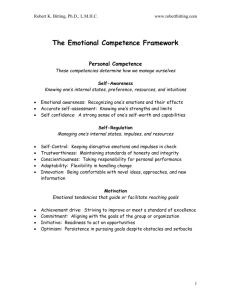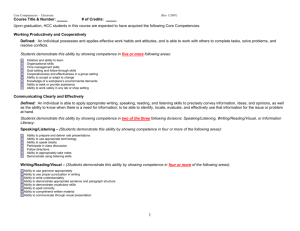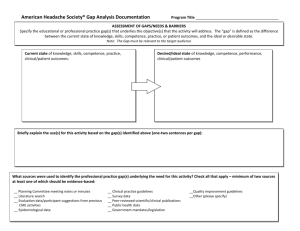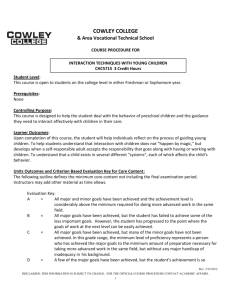CBD Competence Continuum
advertisement
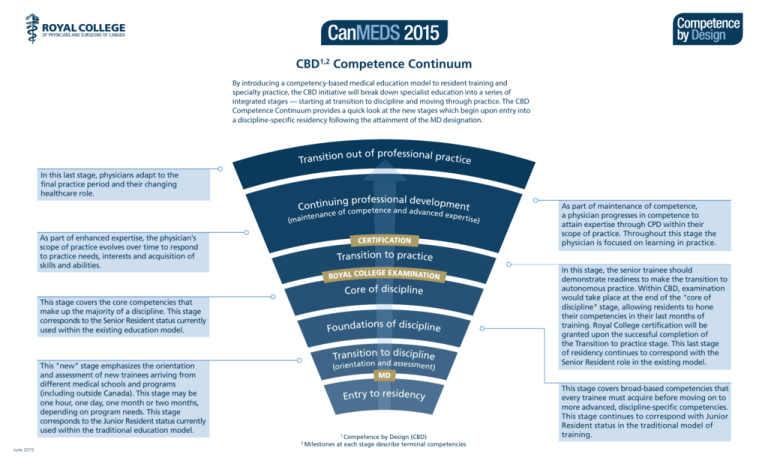
CBD1,2 Competence Continuum By introducing a competency-based medical education model to resident training and specialty practice, the CBD initiative will break down specialist education into a series of integrated stages — starting at transition to discipline and moving through practice. The CBD Competence Continuum provides a quick look at the new stages which begin upon entry into a discipline-specif ic residency following the attainment of the MD designation. n out of professional practice Transitio In this last stage, physicians adapt to the final practice period and their changing healthcare role. ing professional develo Continu of competence and advanc pment e d ex p e tenance (main As part of enhanced expertise, the physician's scope of practice evolves over time to respond to practice needs, interests and acquisition of skills and abilities. r tise) CERTIFIC ATION Transition to practice ROYAL COLL EGE EX AMINATION Core of discipline This stage covers the core competencies that make up the majority of a discipline. This stage corresponds to the Senior Resident status currently used within the existing education model. s of discipline Foundation Transition to discipline ion and assessment) (orientat MD This "new" stage emphasizes the orientation and assessment of new trainees arriving from different medical schools and programs (including outside Canada). This stage may be one hour, one day, one month or two months, depending on program needs. This stage corresponds to the Junior Resident status currently used within the traditional education model. Entry to residency 2 June 2015 As part of maintenance of competence, a physician progresses in competence to attain expertise through CPD within their scope of practice. Throughout this stage the physician is focused on learning in practice. 1 Competence by Design (CBD) Milestones at each stage describe terminal competencies In this stage, the senior trainee should demonstrate readiness to make the transition to autonomous practice. Within CBD, examination would take place at the end of the "core of discipline" stage, allowing residents to hone their competencies in their last months of training. Royal College certification will be granted upon the successful completion of the Transition to practice stage. This last stage of residency continues to correspond with the Senior Resident role in the existing model. This stage covers broad-based competencies that every trainee must acquire before moving on to more advanced, discipline-specific competencies. This stage continues to correspond with Junior Resident status in the traditional model of training.





